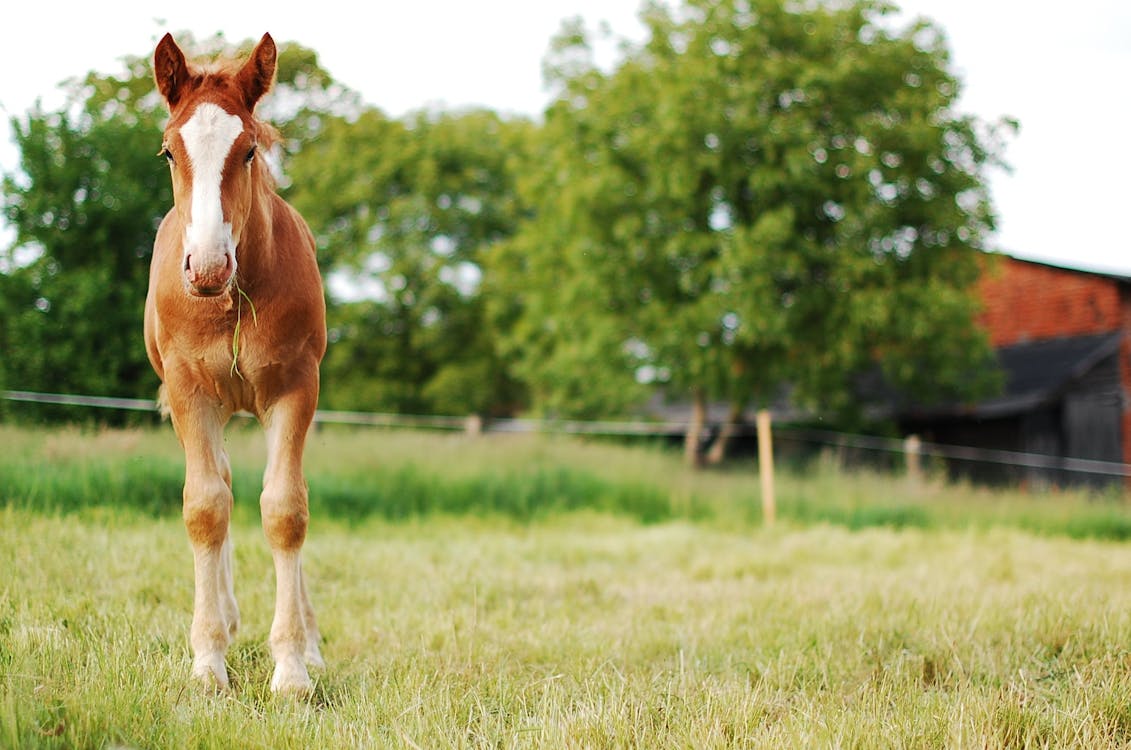Maintaining optimal digestive health in horses is crucial for their overall well-being, mirroring the importance of a balanced diet in humans. Sometimes, however, horses require additional support beyond their natural grazing habits and regular feed. This is where dietary supplements, such as fiber and probiotics, play a pivotal role. This comprehensive exploration explores how these supplements can effectively support and enhance your horse‘s digestive system, ensuring they stay healthy and comfortable.
The Importance of Fiber in a Horse’s Diet
Horses, being natural grazers, have evolved to thrive on a diet rich in fiber. Fiber serves several critical functions in their digestive process, regulating food passage through the gut and minimizing the risk of digestive ailments like colic and impaction. While traditional sources like hay and pasture provide substantial fiber, there are instances where supplementary fiber is necessary.
Types of Fiber Supplements
The market offers diverse fiber supplements tailored to specific equine needs. Take beet pulp, for example—a highly digestible fiber source that helps horses maintain weight and boosts energy levels. Another notable supplement is psyllium husk, renowned for clearing sand from the digestive tract, making it particularly beneficial for horses prone to sand colic.
How Fiber Supplements Function
Fiber supplements increase the bulk of intestinal contents, facilitating regular bowel movements and fostering fermentation in the hindgut. Fermentation yields essential fatty acids, contributing to overall gut health and supporting metabolic functions.
Probiotics: Cultivating Gut Health
Probiotics are live microorganisms renowned for their beneficial impact on digestive health when consumed in adequate quantities. Maintaining a balanced gut flora is instrumental in ensuring efficient digestion and bolstering immune responses in horses.
Benefits of Probiotics
Probiotics have multifaceted advantages for horses. They aid in the breakdown and absorption of nutrients, thereby maximizing dietary efficiency. Probiotics also play a pivotal role in mitigating digestive disturbances during periods of stress, such as changes in diet, travel, or antibiotic treatment.
Selecting the Right Probiotic Supplement
Not all probiotics are created equal, emphasizing the importance of selecting a supplement for equine use. Look for products containing strains like Lactobacillus and Bifidobacterium, which are known for their efficacy in promoting digestive health in horses.
Prebiotics: Nurturing Beneficial Bacteria
Prebiotics are non-digestible substances that feed beneficial bacteria in the gut. Combined with probiotics, they create a synergistic effect that enhances overall digestive health.
Sources and Benefits of Prebiotics
Common prebiotic sources include inulin, fructo-oligosaccharides (FOS), and mannan-oligosaccharides (MOS), often incorporated into supplements designed to support equine digestive function. These substances promote the growth of beneficial bacteria, improve nutrient absorption, and fortify the immune system against gastrointestinal disorders.
Digestive Enzymes: Optimizing Nutrient Utilization
Digestive enzymes are proteins crucial for breaking down complex food molecules into simpler, absorbable nutrients. While horses naturally produce these enzymes, supplementation can benefit older horses or those recovering from illness.
Types and Functions of Digestive Enzymes
Amylase, protease, and lipase are among the essential digestive enzymes. Each specializes in breaking down carbohydrates, proteins, and fats, respectively. Supplementing with digestive enzymes ensures thorough digestion and reduces the risk of undigested food causing gastrointestinal upset.
When to Consider Digestive Enzymes
Horses with conditions like pancreatic insufficiency or those on high-grain diets may benefit significantly from digestive enzyme supplementation. By aiding in nutrient absorption, these enzymes support overall health and vitality.
Herbal Supplements: Harnessing Nature’s Remedies
Herbs have long been recognized for their therapeutic benefits in promoting digestive health in both humans and animals. Several herbs offer natural alternatives to support equine digestive function effectively.
Common Herbal Supplements
Examples include slippery elm, marshmallow root, and ginger, known for their anti-inflammatory properties and ability to soothe digestive tissues. These herbs contribute to maintaining regular bowel movements and alleviating digestive discomfort in horses.
Integrating Herbal Supplements
Before incorporating herbal supplements into your horse’s diet, ensure safety and determine appropriate dosages. Proper guidance ensures that herbal remedies are tailored to meet the specific digestive needs of your horse.
Ensuring the health of your horse’s digestive system is crucial for their overall well-being and performance. Supplements such as fiber, probiotics, prebiotics, digestive enzymes, and herbal remedies support optimal digestive function. Whether your horse requires additional fiber for energy and gut health, probiotics to maintain a balanced gut flora, or herbal supplements for natural digestive support, Ponease offers a variety of high-quality supplements tailored to meet your horse’s specific needs. Integrating these supplements into your horse’s diet can effectively promote digestive health and enhance their quality of life.
Lead Image: Photo by Pixabay


Leave a Reply